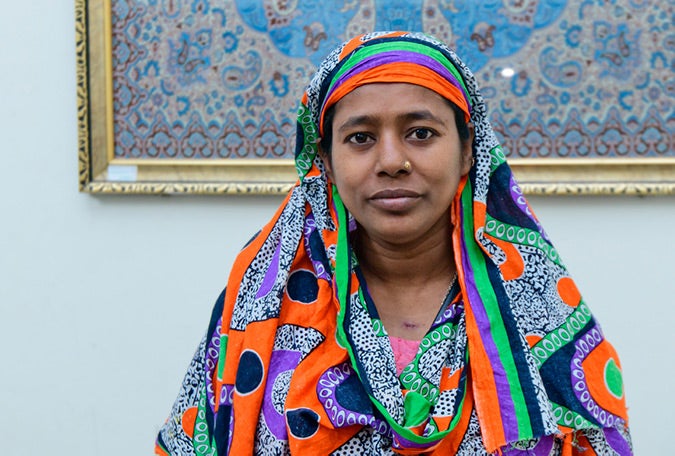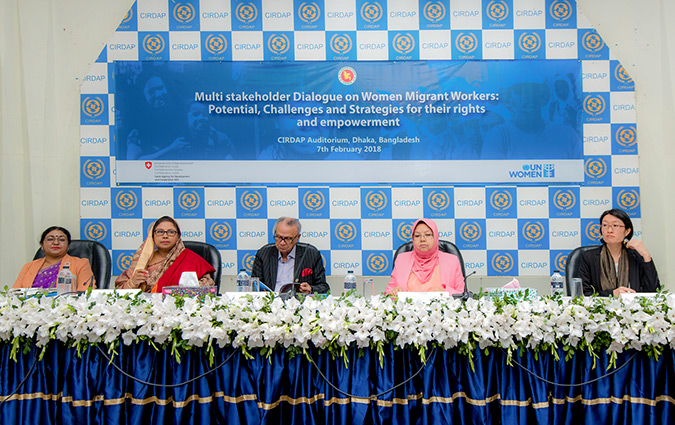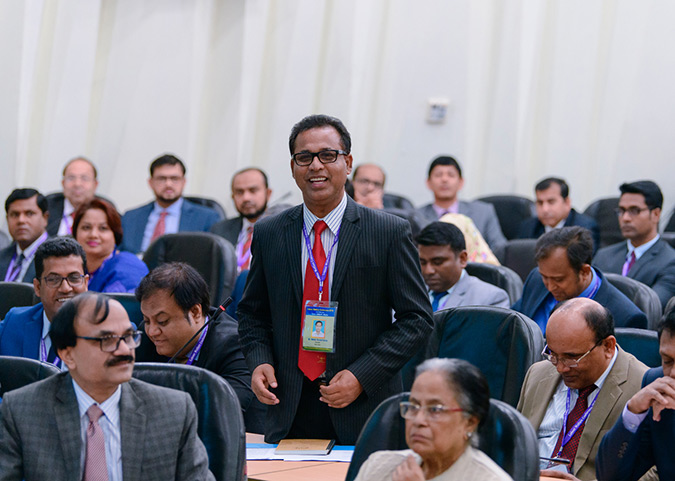Women migrant workers need more protection from abuse: better regulation could help
Date:
Author: Syeda Samara Mortada
Like many Bangladeshis, Shilpi signed up to work in the Middle East in a bid to improve her family's future. Her story of the ordeal that followed, of exploitation, discrimination and abuse, is all too common, especially amid the isolation and vulnerability of domestic work. The rights and empowerment of women migrant workers' rights was the subject of a stakeholder meeting in Dhaka on 7 February.
Dhaka, Bangladesh — Shilpi, 32, left Bangladesh in 2009 for Lebanon to take up a domestic worker position through a recruitment agency. She used all her savings and took out a loan to pay the fees of around 100,000 Taka (USD 1,200). After cursory language training, she was sent to a house outside Beirut where she worked for 11 months without proper food or pay.

When she fell sick, her employers did not visit her once during the seven days she spent in hospital. When she returned to their house, they grew frustrated with her slow pace of work - caused by the swelling in her hands from the IV. They beat her, and Shilpi's patience finally ran out.
Shilpi requested to be released from the contract and allowed to return to Bangladesh. Her employers refused, so she ran away and reached the recruitment office with the help of some friendly locals. The office helped her get back to Bangladesh, but she did not receive any pay for the months she had spent working in good faith.Hundreds of thousands of South Asian women travel abroad for years at a time, in often terrible conditions, to provide for their families. From Bangladesh, women made up an estimated 19 per cent of the 556,000 migrant workers who left the country in 2015.
The women migrants' contribution also benefits their communities in the host countries as well as back home. After they return, their social capital often contributes to socioeconomic development, improvement of human rights, gender equality and women's empowerment, according to a 2013 UN Women study. (Contributions of migrant domestic workers to sustainable development, UN Women Asia Pacific Regional Office)
Yet during their time overseas they are vulnerable to a wide range of risks, many of those exacerbated by gender, such as trafficking, discrimination, abuse, confinement and even "disappearance". Shilpi says "The environment is such that, even if people see a person beat up a domestic help, no one intervenes or says anything".
There are a range of rules and mechanisms available to protect migrant women workers, and to safeguard their access to basic services at every stage of their journey. But these are often not implemented adequately by national governments, or not enforced when they are.
This was the topic under discussion during a multi-stakeholder dialogue held in the Bangladeshi capital on 7 February, with the participation of several state-level ministers, officials, UN Women representatives and delegates from civil society and the private sector.
One promising mechanism consists of bilateral labour mobility agreements between sending and receiving countries. Bangladesh has signed a number of such agreements. Another mechanism is the Standard Terms of Employment (STOE) developed by UN Women with support from the Swiss Agency for Development and Cooperation. UN Women's continuous advocacy on critical elements of STOE for Women Domestic Migrant Workers has led to increased understanding and capacity of Government officials to effectively implement it.
However, these provisions cannot alone address the structural constraints in current labour migration systems that foster the conditions for abuse and exploitation.
Shilpi left Bangladesh and her three children once more in 2011, to look after the children of another family in Jordan. Her conditions were better, and she was paid on time, even if food was still scarce. When the employers asked her to extend the two-year initial contract by a further six months while the mother returned to work, she agreed.
But when she returned to Bangladesh she found she had not been paid for any of those extra six months. In the absence of any institutional support, she has still not been able to recover any of the money from her employers. Despite the story of abuse and exploitation, Shilpi made very strong recommendations to the Ministers and senior officials of the Government of Bangladesh to strengthen the monitoring support from the labour attachés deployed in the respective destination countries. She is determined to have a better life, for herself as well as her family.
More rigorous bilateral agreements between countries and enforceable references to the STOE at all levels could help women like Shilpi avoid the same pitfalls, and make the most of the powerful choice of economic migration to improve their own lives and their families' prospects.

UN Women is committed to creating enabling conditions of work for marginalized groups of women migrant workers all over the world. With the global mandate for facilitating economic empowerment of women, since 2006 UN Women Bangladesh Country Office is working on empowering and promoting the rights of women migrant workers in collaboration with Ministry of Expatriates' Welfare & Overseas Employment, Bureau of Manpower, Employment and Training, UN agencies and Development Partners.

The Dhaka meeting was attended by Nasima Begum, Secretary, Ministry of Women and Children Affairs; Nurul Islam, MP, Minister, Ministry of Expatriates' Welfare & Overseas Employment; Meher Afroze Chumki,MP, State Minister, Ministry of Women and Children Affairs; Nomita Halder, Secretary, Ministry of Expatriates' Welfare and Overseas Employment, Shoko Ishikawa, Country Representative, UN Women Bangladesh; Rekha Saha, Bangladesh Mahila Parishad; government officials, labour Attachés, civil society organizations and private entities.
For more information, contact:
Syeda Samara Mortada
Communications Analyst, UN Women Bangladesh
Email: [ Click to reveal ]